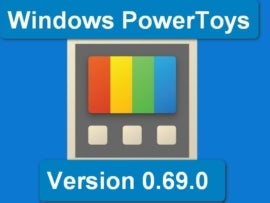-
Paylocity: Best overall Paycom alternative
-
Gusto: Best for streamlined payroll
-
ADP Workforce Now: Best midsize solution
-
Workday HCM: Best for enterprises
-
Rippling: Best customized packages
-
Paycor: Best for industry-specific solutions
Paycom is a human capital management system that helps small, medium and large businesses manage talent, payroll, benefits and expenses on the same platform. But in the crowded HCM software market, Paycom has dozens of competitors that offer many of the same services at different price points and with different features, functionalities and unique benefits.
To help you choose between Paycom and similar companies, we compared Paycom’s pricing and features to those of six Paycom alternatives. Our list includes payroll-focused software like Gusto and expansive enterprise-level HCM solutions like Workday HCM to give you a range of viable Paycom competitors.
Jump to:
- Top Paycom competitors and alternatives: Comparison table
- Top Paycom competitors
- Is Paycom worth it?
- Paycom pros and cons
- Do you need an alternative to Paycom?
- Methodology
Top Paycom competitors and alternatives: Comparison table
Most companies like Paycom offer full-service payroll with automatic direct deposit, tax calculation and tax remittance. Most also offer comprehensive HR software features, such as benefits options for employees, employee self-service portals and mobile apps, hiring and recruiting tools, onboarding features and learning management systems.
| International payroll | Built-in time tracking | Benefits administration | Mobile app | Starting monthly price | |
|---|---|---|---|---|---|
| Paycom | Yes | Yes | Yes | Yes | Custom pricing only |
| Paylocity | Yes (through a third party) | Yes | Yes | Yes | Custom pricing only |
| Gusto | No (contractors only) | Yes | Yes | No | $40 + $6/employee |
| ADP Workforce Now | Yes (add-on) | Yes | Yes | Yes | Custom pricing only |
| Workday HCM | Yes | Yes | Yes | Yes | Custom pricing only |
| Rippling | Yes | Yes | Yes | Yes | $8/employee |
| Paycor | No | Yes | Yes | Yes | Custom pricing only |
Top Paycom competitors
Companies similar to Paycom typically cater to midmarket businesses and large enterprises, though some (like Gusto, ADP and Paycor) have small-business-specific solutions.
Unfortunately, few HCM solutions list their starting prices online, which makes comparing Paycom and its competitors at a glance trickier. We did our best to provide pricing whenever possible in our Paycom competitor list below. However, most companies will have to contact each Paycom alternative directly to schedule a custom demo and request a quote.
Paylocity: Best overall Paycom alternative

Paylocity’s platform combines cloud-based payroll with HR management (including benefits administration), recruiting, onboarding, time and attendance tracking, compliance oversight and basic performance management. The HR software company partners with third-party payroll provider Blue Marble to offer international payroll for both employees and contractors in over 100 countries.
While Paylocity’s thorough features and high price point make it best suited for large businesses and enterprises, it’s scalable for midmarket companies looking for payroll and HR software that can grow with them. Like Paycom, Paylocity’s HR solution is likely too complex — and too expensive — for most small businesses.
Features
- Automated, full-service global payroll in 100+ countries (available through third-party partnership with Blue Marble).
- Automatic expense tracking, approval and employee reimbursement.
- Built-in time tracking, attendance and scheduling software with customizable configurations and alerts.
- Comprehensive online tax resources, including end-of-year tax preparation kit.
- Learning management system with customizable courses.
Pros
- Highly rated, user-friendly mobile app for employees.
- Proactive compliance alerts and real-time compliance news feed.
- Fully automated payroll software with full-service tax administration and unlimited payroll runs.
Cons
- Fewer hiring and workforce management tools than key HCM/HRIS competitors.
- Email-centric customer service.
- No online pricing information (custom quotes only).
Pricing
Pricing for Paylocity is available by request only. Paylocity doesn’t offer a free trial, and while it has dozens of online product training courses, they’re only available for customers with a Paylocity account.
For more information, read our complete Paylocity review.
Gusto: Best for streamlined payroll
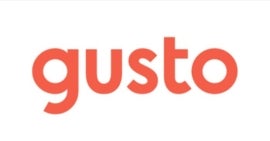
Gusto is easily one of the best, most popular payroll and HR software options for small and midsize businesses. While it doesn’t have Paycom’s sheer number of features, Gusto’s focus on providing outstanding payroll services with basic human resource features makes it an affordable, accessible payroll tool for companies that want to automate every possible aspect of payroll.
As a payroll-first software provider with only the most important HR tools (such as benefits administration and time tracking), Gusto isn’t the best Paylocity alternative for businesses that want a full suite of HCM features. Additionally, while it offers international contractor payments as an add-on feature, Gusto doesn’t support global employee payroll or international benefits administration.
Features
- Unlimited monthly payroll runs with full-service tax administration.
- Employee benefits available through Gusto’s in-house brokerage.
- Recruiting tools, including job posting templates and customizable offer letters.
- Paid time off policy creation and administration.
Pros
- Fully automated payroll with optional autopilot feature.
- Seamless integration with most popular business software tools, including Xero, FreshBooks, 7shifts and Greenhouse.
- Versatile employee pay options, including direct deposit and on-demand pay.
Cons
- No mobile payroll app for employers.
- Health insurance benefits limited to 37 U.S. states.
- Fewer HR features than most payroll and HR software competitors.
Pricing
Gusto has three plans, two of which have transparent online pricing information:
- Gusto Simple costs $40 per month plus an additional $6 per employee paid per month.
- Gusto Plus costs $80 per month plus an additional $12 per employee paid per month.
- Gusto Premium is intended for large companies and requires interested parties to request a custom quote.
If your small business works primarily with contractors, Gusto’s contractor-only plan has no base fee for your first six months of use. International contractor payment is an additional feature that costs an extra monthly cost.
For more information, read our full Gusto review.
ADP Workforce Now: Best midsize solution
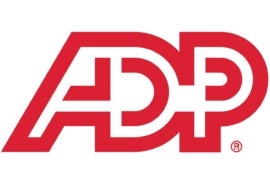
ADP offers a series of HR and payroll products that serve businesses large and small. Its most popular business solution is ADP Workforce Now, a cloud-based HR and payroll program that includes tax administration, time and attendance tracking, employee benefits and talent management.
ADP Workforce Now’s HR features, customer service and automated payroll will likely be enough support for midsize companies, especially those that need more HR help than they’d get through Gusto. However, it lacks the in-depth workforce and talent management tools enterprises can secure through ADP competitors like Paycom, Paycor or Paylocity. As businesses grow, though, it’s fairly easy to scale from Workforce Now up to ADP’s more thorough HCM solution, ADP Vantage HCM.
Features
- Automated full-service payroll.
- Employee self-service portal.
- Hiring tools, including access to ZipRecruiter and branded company websites.
- Data, reporting and analytics powered by machine learning and artificial intelligence.
Pros
- Excellent mobile payroll apps for both employers and employees.
- Industry benchmarking comparisons and compensation analysis.
- In-house, white-glove implementation and setup.
Cons
- No transparent online pricing.
- No benefits administration or built-in time tracking with cheapest plan.
- Fully automated, integrated time tracking only available with most expensive plan.
Pricing
While ADP doesn’t list its pricing information online, the company does advertise a free trial of up to four months for new customers.
For more information, read our full ADP review.
Workday HCM: Best for enterprises
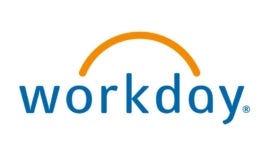
Workday HCM’s cloud-based platform was built for multinational enterprises that need end-to-end payroll, HR and workforce management. The software has a full suite of hiring and recruiting tools, including skills-focused assessments and metrics.
In contrast to payroll- and HR-heavy tools like Gusto and ADP Run, Workday focuses on improving every aspect of the employee experience. Using Workday’s employee engagement tools (for instance, surveys and external benchmark comparisons), employers can understand what employees need to feel valued at work. Self-guided onboarding tools get employees up to speed quickly, and skills-based courses help employees progress along their career path.
Features
- Skills-based recruiting, hiring and employee training through Workday Skills Cloud.
- Financial management add-on.
- Comparative compensation and employee benefits tools.
Pros
- Clear, easy-to-read dashboards.
- Insightful real-time reports.
- Continuous payroll with optional outsourcing.
Cons
- No free trial or transparent online pricing.
- Glitchy Android app for employees.
Pricing
Workday HCM doesn’t have any transparent online pricing data. Contact a sales representative for a quote.
For more information, read our full Workday HCM review.
Rippling: Best customized packages

Rippling’s HR Cloud includes common HCM and HR features like full-service payroll, employee benefits administration and time-tracking software. Unlike most other HRIS solutions, Rippling also offers IT and financial services in conjunction with HR and payroll. Along with people management, companies can use Rippling to tackle accounting, expense tracking, employee tech management and inventory management on the same platform.
Thanks to its customizability, Rippling can work just as well for small businesses as for enterprises. You can add more features as your company hires more employees and establishes more locations, including international locations, as Rippling supports global payroll.
Features
- Remote device setup with secure onboarding and offboarding.
- Optional employer of record and PEO services.
- Thorough workflow automations and customized permissions.
- Corporate card management.
Pros
- Customizable packages are easy to scale.
- Completely unified operating system supports inventory, people and tech management.
- 500+ third-party integrations.
Cons
- Limited online pricing information.
- Price point may be too high for small and some midsize businesses.
Pricing
Each Rippling package starts with Rippling Unity, Rippling’s central operating system. From there, businesses can add features from Rippling’s cloud-based IT, HR and finance modules, most of which cost a monthly fee per employee.
For instance, Rippling payroll costs $8 per employee per month on top of the monthly fee for Rippling Unity, but Rippling doesn’t list any other pricing information online, including Rippling Unity’s base cost.
For more information, read our full Rippling review.
Paycor: Best for industry-specific solutions

Paycor’s HCM software platform unifies employee benefits, recruiting tools, HR administration, payroll and workforce management to give companies a single source of truth for most business processes. While any type of company can use Paycor’s software, Paycor offers industry-specific HCM plans with targeted tools for educators, retail businesses, nonprofits and churches (among others).
Features
- Integration with top accounting software programs, e.g. QuickBooks Online.
- Native learning management system.
- Workers’ compensation insurance and employee benefits administration.
- Recruiting and hiring tools with complete compliance oversight.
Pros
- Fully automated payroll runs.
- Automatic expense tracking and employee reimbursement.
- Multiple plan options to accommodate different budgets and company sizes.
- Well-reviewed payroll and time-tracking apps.
Cons
- No transparent online pricing information.
- Limited API integrations.
- No dedicated customer support with cheapest plans.
Pricing
Paycor has multiple HCM software packages that scale to support companies with fewer than 50 employees, more than 50 employees and more than 1,000 employees:
- Paycor Basic includes most full-service payroll features for small businesses.
- Paycor Essential adds general ledger reports and multiple HR features.
- Paycor Core adds expense management and access to one-on-one customer support.
- Paycor Complete adds career management, compensation planning and talent development tools.
While Paycor doesn’t list its plans’ starting prices, it does advertise a six-month 50% off discount with no setup fees for new customers.
For more information, read our full Paycor review.
Is Paycom worth it?
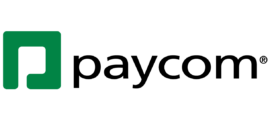
Paycom’s user-friendly software is likely worth it for businesses that want employee-first software with plenty of features for HR managers. Its payroll software empowers employees to take charge of their own hours, schedules, benefits and time off. Paycom also helps you keep employees happy through its employee engagement surveys, onboarding tools and compensation management features.
However, you’ll want to weigh Paycom’s features, pros, cons and pricing before deciding if the software is worth it for your business. A one-on-one demo with a Paycom team member is the best way to figure out if Paycom’s interface appeals to you or not, and whether its features can keep up with your business’s rate of growth.
Paycom pros and cons
Like any HR software, Paycom has its strengths and weaknesses. Its key strength lies in its employee focus, since businesses can use the software to garner employee feedback and easily connect employees with HR managers. Its largest weakness could lie in the fact that Paycom has fewer customers than more established competitors like Paylocity. As a result, it has fewer integrations than similar companies.
Paycom pros
- Fully automated employee-centric payroll.
- All-in-one payroll, HR, talent and time and labor management.
- Scalable payroll and HR software grows with you.
Paycom cons
- No transparent pricing information.
- Fewer third-party app integrations than similar companies.
- Limited customizability.
Paycom pricing
Paycom’s pricing is available by request only.
You can learn more about how Paycom caters to your business’s needs and price bands by reading our ADP vs. Paycom comparison.
Do you need an alternative to Paycom?
In the end, whether you need Paycom or an alternative depends largely on your budgetary restrictions, workforce needs and feature requirements. Since few HCM solutions have online pricing information, contact each Paycom alternative you consider — as well as Paycom itself — to schedule a demo where you can ask company-specific questions.
While the final choice between Paycom and a Paycom alternative is up to you, we do have some general guidelines that can help narrow your focus.
If your multinational enterprise has over 1,000 employees, Workday HCM likely has more features and support for your global workforce than Paycom does. If you want an industry-specific solution or one that gives you complete control over its customization, Paylocity, Paycor or Rippling could be a better fit. And if your business needs a less expensive, less complex Paycom alternative, Gusto and Paychex automate payroll and offer supplementary HR features for smaller, budget-conscious companies.
Methodology
To create our list of the top Paycom alternatives and competitors, we looked at the most popular and well-reviewed outsourced HR, payroll, HCM and HRIS solutions. We viewed demos for Paycom and as many of its competitors as possible and thoroughly reviewed each company’s website, including white papers and product specs when available.
Additionally, we consulted aggregate review sites like Google Play, Gartner Peer Insights and Apple’s App Store to identify each business solution’s target audience, standout features and biggest pain points for customers.







